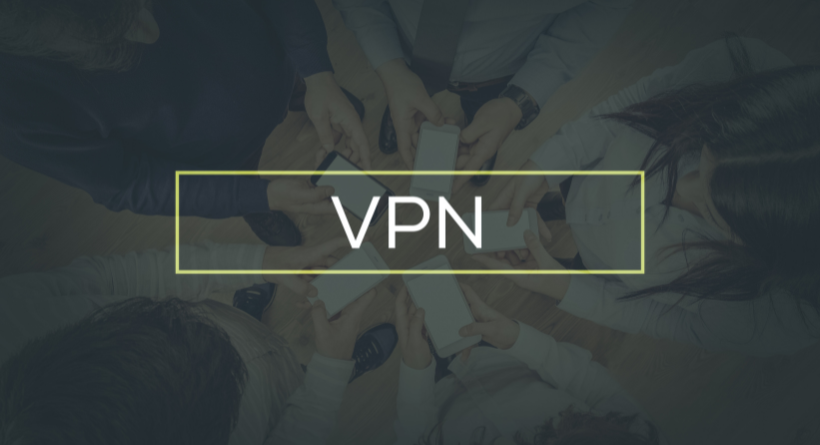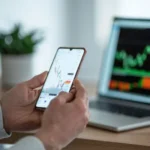Accessing foreign websites is made possible via a virtual private network (VPN), and it may even provide secure connections for sending sensitive corporate information. VPNs allow organisations to manage numerous user identities, filter out particular information, and protect your data from snoopers even though they are primarily used by individuals.
Methodology
To compile this ranking of the top VPN services, Forbes Advisor looked at ten main elements and twenty supporting variables. Each VPN service might get a total of 50 points based on those criteria. Then, we converted that point system into a straightforward 5-star rating.
Key Elements
Our criteria take into account things like user evaluations, the number of servers, the location of the servers, the number of discrete server locations, the cost of the yearly basic plan, the availability of dedicated IP add-ons, and the cost of those add-ons (if available).
Pricing
It might be challenging to navigate the different VPN price structures. We examined the usual yearly membership tier of a VPN, which normally demands an upfront payment.
Personal Use vs. Business Use
We paid particular attention to services that let you connect several devices at once and provide a dedicated IP address as an add-on to account for business and professional applications for VPNs. Because it reserves a private IP address for you and all of the devices connected to your account, this is a key feature of the majority of corporate VPNs. This service is often available à la carte for individual users, saving you from paying the steep fee associated with the commercial tier.
A VPN is what?
Whether you are using public Wi-Fi, at work, or at home, a virtual private network (VPN) is a service that increases your online security. When you use the internet, a VPN hides your IP address, protecting your identity and keeping your online behaviour secret.
Consider a VPN as a tunnel or covered bridge for your data. It conceals your name, IP address, and any data you transmit or receive online from snoopers. Your IP is hidden when you use a VPN, making you practically untraceable and impossible to identify.
What Functions a VPN?
Your web data is encrypted when you use a VPN programme. To establish the connection and bring you online, it transmits the shielded data to your ISP. Your data is then decoded by the VPN, making it useful wherever you transmit it.
Consider it to be a decoder ring. With the help of the decoder ring, you type a message in code (using VPN encryption) and transmit it to a recipient (a website) (decryption by VPN). If someone were to intercept that communication, such as your checking account login information, it would seem to them as gibberish since they are unable to decipher the code.
The VPN also encrypts data transmitted back to you before sending it.
When you connect to the internet without a VPN, your device contacts your ISP or a Wi-Fi network. There is no encryption used for the data that travels between you and your destination. You become open to anybody wanting to observe your internet behaviour as a result of this. Additionally, tracing your IP might reveal who you are.
What Is the Price of a VPN?
The cost for VPN services varies from being free to roughly $13 per month, as seen in the graph above. Free VPNs often have restrictions on the devices and places you may connect. When you agree to pay for a VPN for many years in advance, the cheapest VPNs often offer you significant savings. Business VPNs normally charge more since they frequently have many devices connected at once (justifying the premium cost).
Utilizing a VPN
Most VPNs available nowadays are really simple to use. You just need to download the VPN software on your computer or smartphone after setting up an account with the provider. Typically, after logging in with your account, you may choose from a list of remote servers spread out throughout the globe. When you choose the one you want, the system ought to link you right away. You may use your device normally without your VPN after receiving confirmation that you are connected. From the home screen of your app, you may disconnect or switch servers.
Why You Need a VPN: 5 Reasons
Your data may be protected from those who wish to exploit it for targeted advertising at home by using a VPN. When you connect to public Wi-Fi on your mobile device, a VPN may shield the login information and other information you transfer. Additionally, it might be particularly helpful for companies that need to safeguard sensitive information. Here are a few of the most typical VPN applications:
1. Don’t Share Your Data with Your ISP
You and your ISP have a partnership, so they can monitor what you do online (such as what sites you visit, the time you spend browsing, etc.). Your ISP could even sell your personal information to advertising, depending on the Terms of Service and what you’ve consented to. However, the majority of internet service providers claim that your saved data is kept private in all other circumstances.
ISPs are obliged to retain browser history information for 90 days in the US. An ISP must accede to a government request for your online history. In fact, the government doesn’t even need a warrant to examine your internet data in circumstances of national security. Theoretically, local law enforcement may utilise your data to assist in your conviction of a crime if they had a warrant.
Even if you follow the rules, you may not want your ISP to record every URL you visit. You can hide your activities if you use a VPN. It can at the very least provide you with comfort.
2. Employ a VPN to use public WiFi securely
You could be tempted to use public Wi-Fi while waiting for a flight at the airport, checking your email, or reading the news on your phone in a nearby café. Right, it looks secure enough. The airport or company is offering the free internet connection, and they mean well.
The good news is that since most people started using HTTPS instead of HTTP, web surfing has been safer. The “S” in the URL stands for a security protocol that protects data sent to and received from a website over the internet using a secure sockets layer (SSL) certificate. It is safer for you to pay for goods and services online because of this, for instance.
However, the majority of public Wi-Fi networks are open and unprotected by a password, thus you run the danger of having a hacker who is scanning the Wi-Fi network steal your connection.
You may connect to public Wi-Fi anonymously and virtually stay hidden on the network if you first enter into a VPN provider. Even if a cybercriminal is on the same network, you will be protected because to a VPN’s ability to encrypt active data and conceal your identity over an open internet connection.
3. Defend Your Personal Information from Companies
Shoppers can access free Wi-Fi and applications from many stores, which makes it very difficult to resist using them. For starters, using a retailer’s app could provide you access to special discounts and promotions, which is alluring. As a result of the metal in building constructions, many physical sites also obstruct mobile phone coverage.
Businesses who provide these benefits for free or provide rewards for using their applications and Wi-Fi are doing so to gather your data, which is very important to them. If you want to safeguard your personal data, there is just another compelling argument for using a VPN. Additionally, whether you’re shopping in malls or shops, you may still use free Wi-Fi and your applications securely.
4. Guard confidential information
Recently, many businesses implemented a remote or hybrid work strategy, which is practical for many workers. Having remote employees link onto corporate servers from their homes raises security issues, however, since you can’t be sure how safe their connections are. They can be working at a coffee shop or from home. Additionally, if a connection is broken, it’s possible that active data might be sent from an employee to a hacker instead of the Wi-Fi the employee is attempting to access.
Your company’s information and projects will be more secure if you provide all workers remote access and a VPN.
5. Use Content Blocked
A VPN may get you access to material that you are now unable to access in addition to protecting your data. There are advantages in this situation for a number of reasons.
Some inhabitants of nations with tight regimes may not be allowed to access websites that hold opinions contrary to those of their leaders. A VPN may trick your computer into thinking you’re somewhere else so you can access media or websites that are otherwise prohibited. Additionally, your VPN connection may mask your IP address and true location, making it impossible to identify you.
Utilizing a VPN also gives you access to material that you wouldn’t otherwise be able to locate. For instance, depending on the locale, Netflix and Hulu provide various forms of television. You may not be able to see British content on Netflix if you reside in the United States. By creating the impression that you are in another nation, a VPN might enable you to access that restricted material.
These are just a few instances of how a VPN might shield you or provide access to content that has been restricted. There are several further reasons for why everyone should use a VPN.
Various VPN service types
You may utilise several VPN software kinds in a variety of circumstances. Personal VPNs are the most popular, but you could also want a remote access VPN, a site-to-site VPN, or a mobile VPN.
Individual VPN
A personal VPN, often known as a consumer VPN, only hides your IP address and encrypts data transfers that are currently in progress (from you and to you). Additionally, it spoofs your location, allowing you to view previously blocked stuff from your nation.
Remote VPN Access
If you work for a firm that needs you to connect into a private network while you are on open/public internet, it may be the most frequent application of a remote access VPN. The employee’s connection and data transmission to the private network are both protected by the VPN.
VPN Site-to-Site
An inter-site Businesses who seek to create a single wide area network (WAN) between two or more different networks might benefit from using VPN. A company with several locations around the nation and staff members who need access to data across the integrated network, like AT&T or PetSmart, is an excellent illustration of this.
Mobile VPN
A mobile VPN is similar to a remote access VPN, with the exception that it is made for those who use mobile devices and anticipate that their internet connection may be provided by Wi-Fi or a cellular network. Therefore, if you use Wi-Fi to access a company’s network and the Wi-Fi goes down, your phone may switch to cellular data, but the VPN maintains the connection.
How to Set Up a VPN
Setup should be simple since the majority of individuals who wish to use a VPN would probably go for a personal VPN to safeguard their mobile and home internet traffic. Download the software or app on the devices you want to use your VPN on after first signing up for a VPN service. You should be guided through setup by the applications.
You may follow specific instructions for your operating system to manually configure your VPN. The technique that many of the applications use is described below.
- Install the programme or app after downloading it.
- “Settings” or “System Preferences” should be clicked.
- Select either “Network” or “VPN.”
- Put your account information in the “Server Name,” “VPN Type,” “Remote ID,” and “Local ID” sections (some of the fields may vary depending on the OS)
- Activate your VPN.
Bottom Line
You can get privacy, security, and independence from most VPN providers for a fair monthly fee. You can be confident that your IP address is hidden when you use a VPN, that your internet data is safe, and that you can access information that may not be accessible to you in your present location. We hope that our advice has assisted you in locating the top VPN for your particular requirements.
Frequently Asked Questions (FAQs)
What is the price of a VPN?
The service plan you choose and any add-ons you select will determine the final cost of a VPN. For $39.95 a year, Private Internet Access, for instance, allows up to 10 devices to be utilised simultaneously.
With a VPN, what can I access?
You may be able to access geo-restricted material in other countries by using a VPN. They are often used by clients to access foreign streaming material that is unavailable in their local country. They may also be utilised to get over any local government limitations you might have.
What is a VPN connection?
Depending on your device and operating system, there are several steps involved in connecting to a VPN. In most cases, you have to download the VPN’s programme or software, type in your login and password, and choose a server. You may visit the VPN’s website or get in touch with customer care for more comprehensive instructions.







